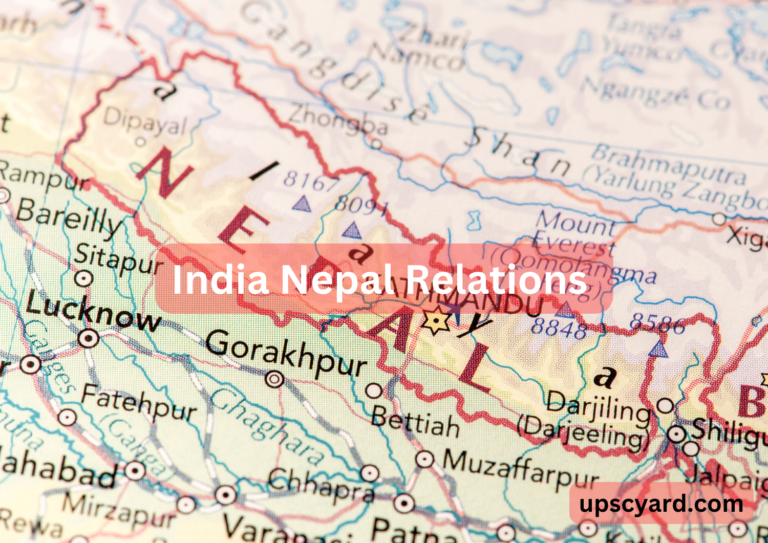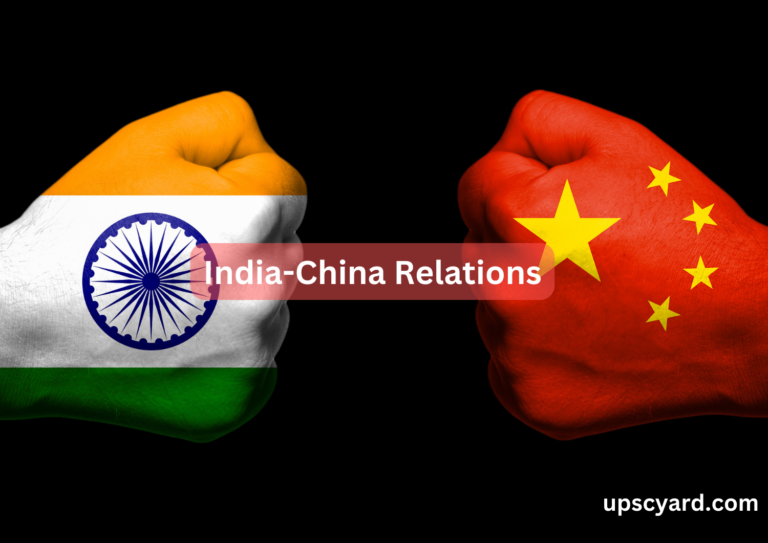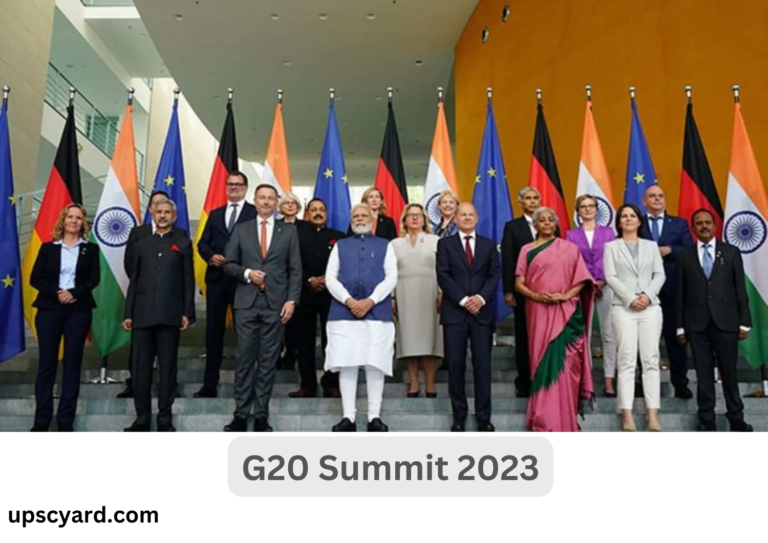The North Atlantic Treaty Organization (NATO) is a military alliance established in 1949, consisting of 30 member nations. These members include 27 from Europe, two from North America, and one from Eurasia.
NATO’s primary objective was to establish a framework for “collective defense” against potential threats, particularly from Germany or the Soviet Union, in the post-World War II era.
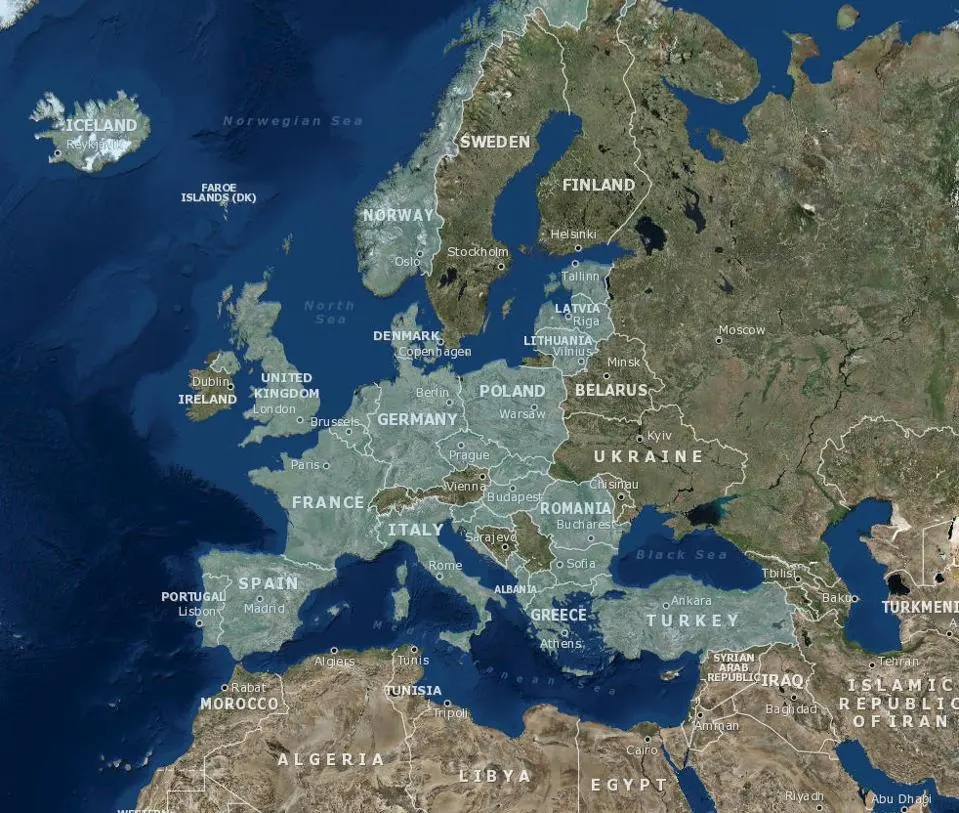
- Headquarters: Brussels, Belgium.
- Headquarters of Allied Command Operations: Mons, Belgium.
Article 5
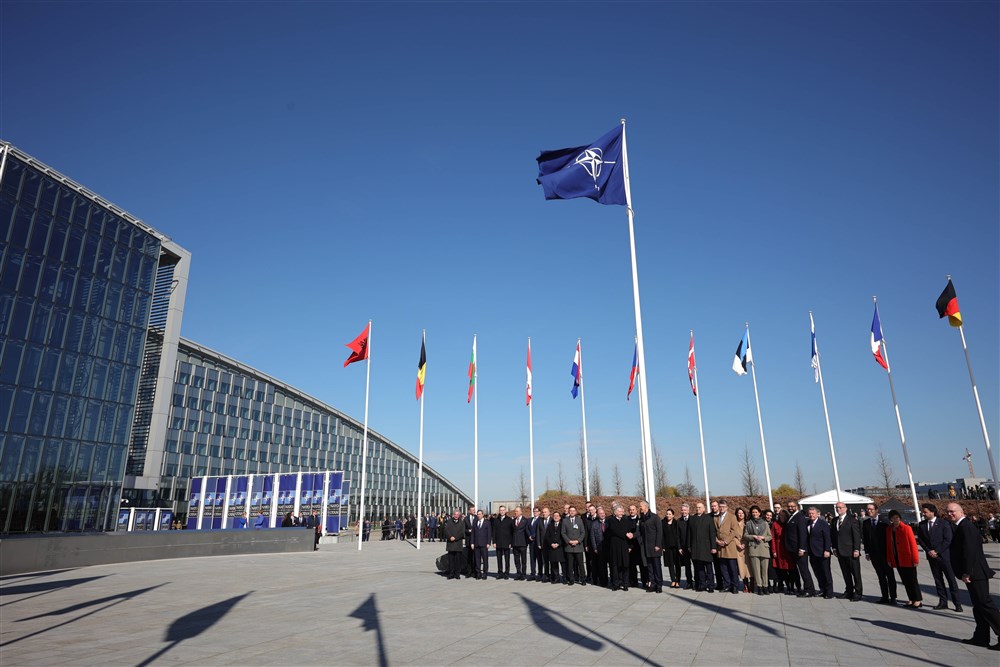
Article 5 of NATO’s founding treaty is a cornerstone, stating that an attack on one NATO member is tantamount to an attack on all members. Nevertheless, NATO’s support is primarily reserved for its member nations and does not obligate the alliance to deploy troops to non-member countries. However, in specific cases, NATO has undertaken missions in neighboring regions and has voiced its support for countries like Ukraine.
NATO membership is extended to European countries that meet specific criteria, including having a functional democratic political system based on a market economy, a commitment to minority rights, a dedication to peaceful conflict resolution, a capacity and willingness to contribute militarily to NATO operations, and a commitment to democratic civil-military relations and institutions. Admission of new members requires the unanimous agreement of all existing member nations.
NATO’s command structure is overseen by the Military Committee, the alliance’s highest military authority. This structure includes the Chiefs of Defense from all 30 member countries. The NATO Command Structure (NCS) consists of two strategic commands: Allied Command Operations (ACO) and Allied Command Transformation (ACT). These entities are integral to the organization’s operational and strategic activities.
The significance of India’s talks with NATO
Background of India-NATO engagement: India initiated its inaugural political dialogue with the North Atlantic Treaty Organization (NATO) in Brussels on December 12, 2019. The objective was to evaluate cooperation on regional and global issues of mutual interest. This dialogue was primarily politically oriented.
NATO’s engagement with Pakistan and China: India’s discussions with NATO gain importance as the North Atlantic alliance has been actively involved in bilateral dialogues with both China and Pakistan.
Balance in NATO’s perception: Engaging in a political dialogue with NATO offers India a platform to potentially influence and balance NATO’s understanding of regional situations and issues pertinent to India.
Common ground: There is a notable convergence in the perspectives of both India and NATO on critical issues such as China, terrorism, and Afghanistan. This includes shared concerns about Pakistan’s role in Afghanistan. The topic of maritime security is also a prominent area of discussion, where India and NATO find common ground.
It’s essential to recognize certain limitations in India-NATO talks
Russia’s threat to Euro-Atlantic: NATO’s viewpoint emphasizes that Russia’s aggressive actions continue to pose the primary threat to Euro-Atlantic security, rather than China.
China as a challenge and opportunity: The alliance holds a diverse range of opinions on China, considering it both a challenge and an opportunity. There’s no uniform consensus among NATO countries.
Taliban as a political entity: In the context of Afghanistan, NATO perceives the Taliban as a political entity. This contrasts with India’s stance, particularly as it was articulated almost two years before the Taliban established an interim government in Afghanistan in September 2021.
Alliances of NATO
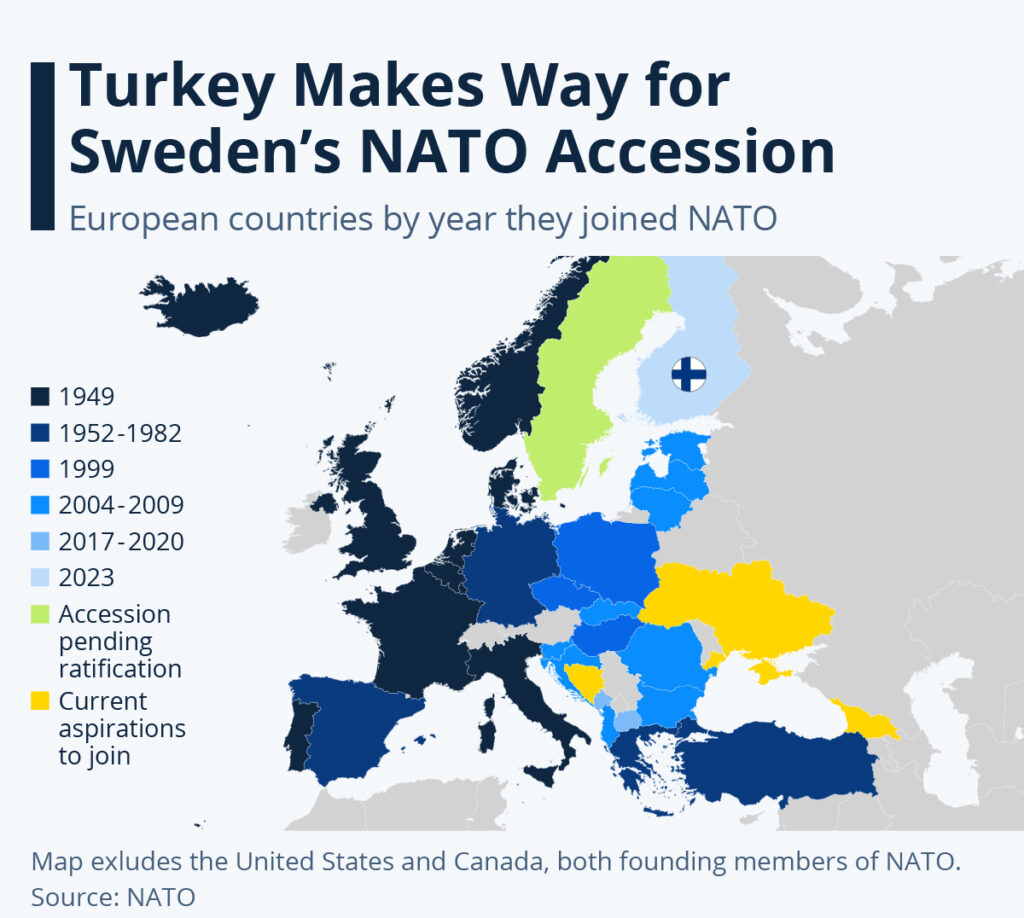
1. The Euro-Atlantic Partnership Council (EAPC)
The Euro-Atlantic Partnership Council (EAPC) serves as a pivotal multilateral forum comprising 50 nations, providing a platform for dialogues and consultations on political and security-related matters among NATO Allies and partner countries. This council establishes the overarching political framework for NATO’s collaborative efforts with partner countries within the Euro-Atlantic region.
The primary context for this cooperation is the Partnership for Peace (PfP) program, which fosters practical bilateral collaborations between individual Euro-Atlantic partner nations and NATO. Under PfP, partner countries have the flexibility to tailor their relationship with NATO according to their unique priorities for cooperation.
EAPC was established in 1997, succeeding the North Atlantic Cooperation Council (NACC), which was founded in 1991 following the conclusion of the Cold War.
Additionally, NATO has introduced regional partnership forums to enhance security, stability, and understanding in specific regions:
2. Mediterranean Dialogue: This partnership forum is dedicated to bolstering security and stability in NATO’s Mediterranean and North African neighborhood. It aims to cultivate positive relations and mutual comprehension among participating countries and NATO Allies. Presently, the following non-NATO countries are part of the Dialogue: Algeria, Egypt, Israel, Jordan, Mauritania, Morocco, and Tunisia.
3. Istanbul Cooperation Initiative (ICI): This forum is designed to contribute to long-term global and regional security by extending cooperation opportunities with NATO to non-NATO countries in the broader Middle East region. The ICI is aimed at fostering collaboration between these countries and NATO to promote security in the region.


